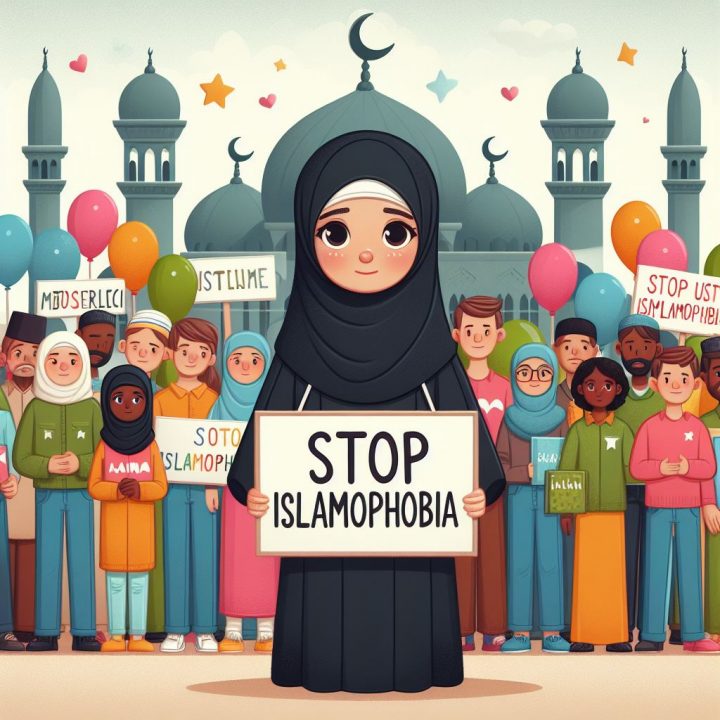By Syed Atiq ul Hassan, Sydney, Australia, 15 March 2024
The United Nations defines Islamophobia as the irrational fear, prejudice, and hatred directed towards Muslims, which often results in harassment, abuse, and discrimination, both online and

offline. It manifests in various forms, including threatening behaviour, incitement, and intimidation.
This prejudice, deeply rooted in institutional, ideological, political, and religious hostility, extends to structural and cultural racism, targeting symbols and markers associated with Islam.
UN Secretary-General António Guterres has consistently condemned acts of anti-Muslim hatred and bigotry worldwide, emphasizing that this trend not only affects Muslims but also targets other religious and ethnic minorities such as Jews and Christians. In his message for the International Day to Combat Islamophobia, Guterres underscored the institutional discrimination and human rights violations faced by Muslims, highlighting the role of divisive rhetoric and misrepresentation in stigmatizing communities and inciting violence. He called for a united effort against all forms of bigotry, urging leaders and individuals to condemn inflammatory discourse, protect religious freedom, and promote mutual respect and understanding. Additionally, digital platforms were urged to take a stand against hateful content and protect users from online harassment.
The second International Day to Combat Islamophobia was observed worldwide on 15th March 2024. This significant day was established following the adoption of a resolution by the United Nations General Assembly on 15th March 2022. The resolution, introduced by Munir Akram, Permanent Representative of Pakistan to the UN, on behalf of the 60 Member States of the Organisation of Islamic Cooperation (OIC), marked March 15th as the ‘International Day to Combat Islamophobia.’ Credit for this initiative primarily goes to Imran Khan, who raised the issue for the first time in UN history during his speech as Prime Minister of Pakistan in 2022. Emphasizing cooperation over confrontation in international relations, Khan stressed the importance of dialogue in resolving political and geopolitical issues faced by Muslim-majority countries.
Imran Khan’s leadership potential in fostering peace and solidarity within the Islamic world is undeniable. However, it is disheartening that he currently faces incarceration on fabricated charges by the current government and establishment. It is imperative for the Muslim world to advocate for his release and support his vision for a sovereign and modern Islamic nation.
Islam, the second-largest religion globally, with 1.9 billion followers representing 24.9% of the world population, often falls victim to unjustified fear and prejudice. On March 10, 2024, US President Joe Biden reaffirmed the United States’ commitment to combating Islamophobia, emphasizing the country’s foundation of freedom of worship and the significant contributions of Muslim immigrants.
In Australia, Muslims denounce Islamophobia and uphold the peaceful principles of Islam. Australia, known for its multiculturalism, fosters an environment where Islam can thrive without hindrance, reflecting the nation’s respect for people of all faiths, creeds, castes, and colours.
(The writer is a Sydney-based journalist, political analyst, writer and a commentator. He is a Senior Community Representative and Editor-in-Chief of Tribune International, Australia. His email is shassan@tribune-intl.com ).
Syed Atiq ul Hassan
Sydney-based journalist, political analyst and a commentator,
Community Representative,
Mob +61 479 143 628




